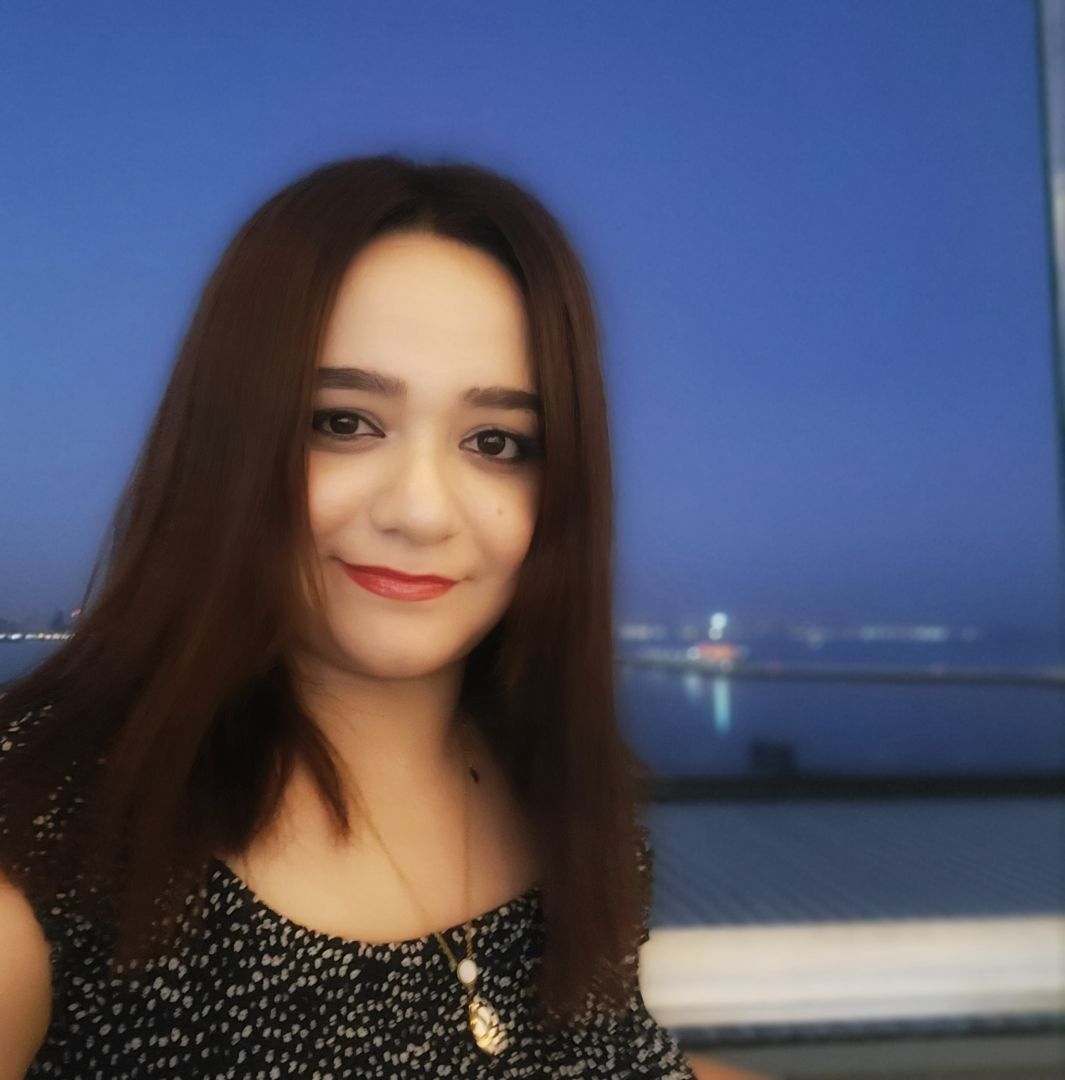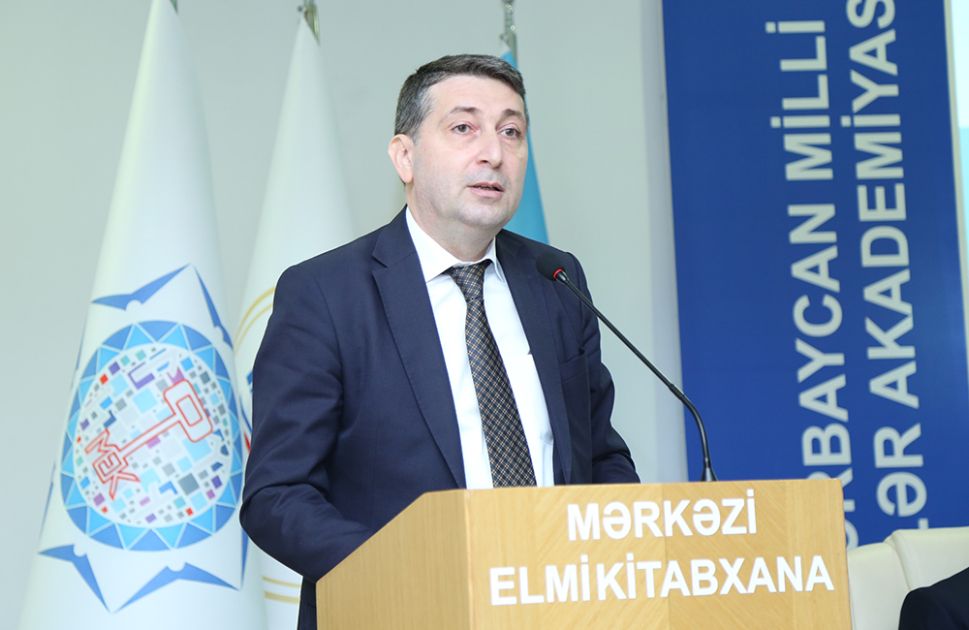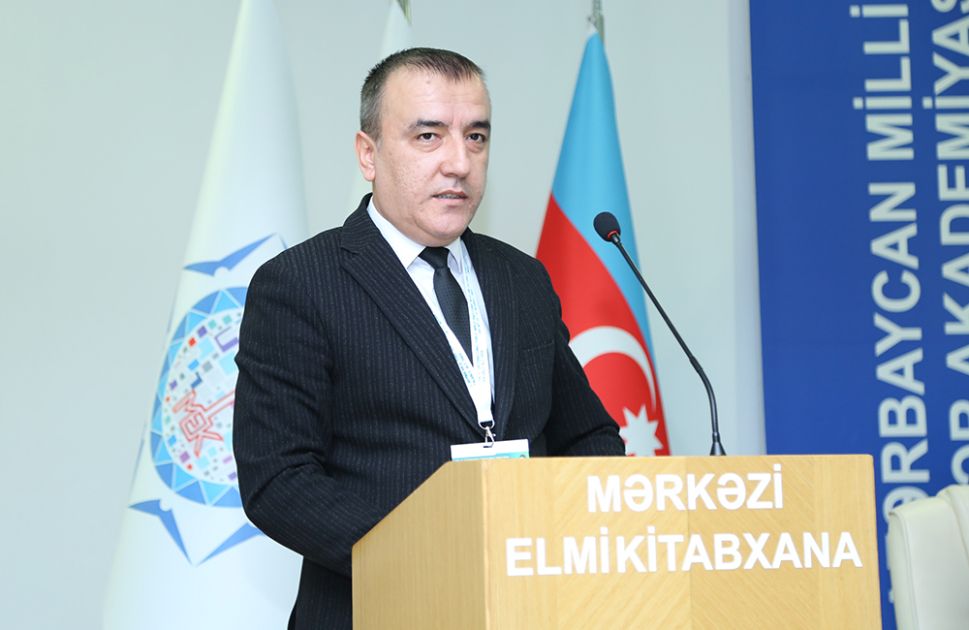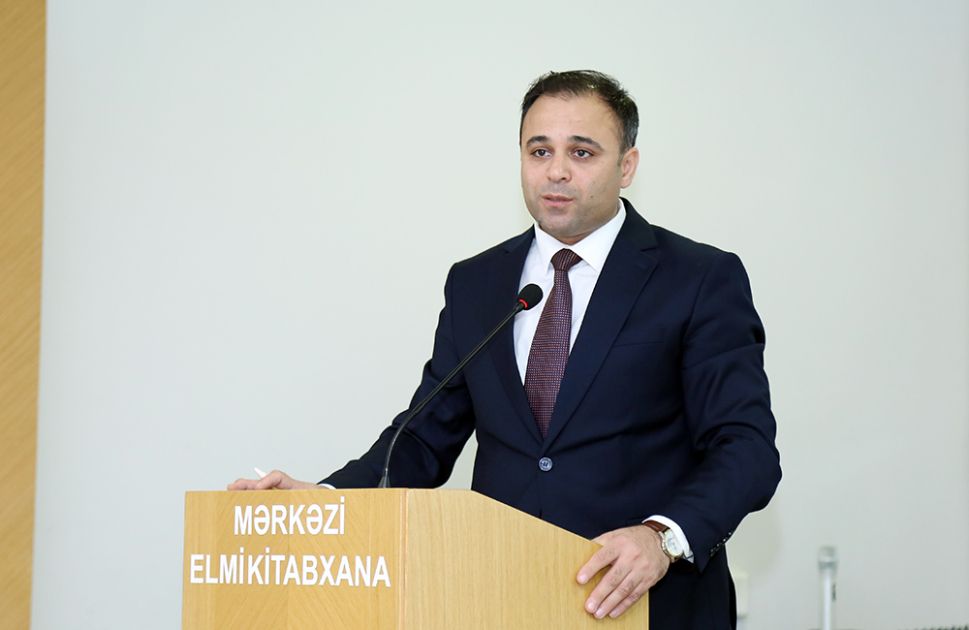Baku hosts 1st Int'l Symposium on Traditional Music and Cultural Identity of Turkic World [PHOTOS]
![Baku hosts 1st Int'l Symposium on Traditional Music and Cultural Identity of Turkic World [PHOTOS]](https://www.azernews.az/media/2025/11/21/erfgregpoktp7.jpg)
The Central Scientific Library of the Azerbaijan National Academy of Sciences (ANAS) has hosted the opening of the 1st International Symposium on Traditional Music and Cultural Identity of the Turkic World, marking the 150th anniversary of Kalvali Ali Dede, Azernews reports.
The symposium is jointly organized by the ANAS Institute of Folklore, the Institute of Architecture and Arts, the Azerbaijan National Conservatory, Ankara University of Music and Performing Arts, Erzincan Binali Yildirım University, Kars Caucasus University State Conservatory, Khoja Ahmad Yasawi International Turkic-Kazakh University, the Azerbaijan Ashiqs Union, and the Azerbaijan International Mugham Center.
The event began with a tribute at the bust of National Leader Heydar Aliyev in the library foyer, where fresh flowers were laid in his honor.
ANAS President, Academician Isa Habibbayli opened the symposium by highlighting its aim of deepening scientific research into the musical folklore of the Turkic world.
He emphasized the importance of studying the historical roots of ancient instruments such as the balaban, zurna, and saz, as well as understanding their cultural significance and place in collective memory.
Isa Habibbayli noted that evaluating the artistic legacy of Kalvali Ali Dede (Ali Karimov), a master of the zurna–balaban tradition, within the broader Turkic context holds substantial scholarly value.
He also recalled President Ilham Aliyev's remarks at the 80th anniversary of ANAS, which underscored new strategic tasks for the scientific community, including safeguarding national and spiritual values and promoting cultural heritage.
Isa Habibbayli further noted that Kalvali Ali Dede, a virtuoso performer of the zurna, balaban and saz, composed more than 70 dance melodies and established a significant musical school.
He added that his artistic legacy continues today through both his family and committed followers.
The Academician stressed that the symposium reflects scientific respect for Ali Dada's contributions and plays an essential role in promoting ancient wind instruments. The studies presented at the event, he said, represent the first comprehensive scholarly research of their kind in Azerbaijan.
Fakhri Hajiyev, head of the Turkic Culture and Heritage Foundation's Executive Office, delivered a message from the Foundation's President, Aktoty Raimkulova.
The message highlights the symposium's relevance in exploring the shared spiritual memory of the Turkic nations and emphasized traditional music as a vital cultural value that strengthens identity, connects generations, and ensures continuity. He pointed out that the similarities between musical traditions across the Turkic world, such as mugham, ashik art, and folk melodies as evidence of deep common cultural roots. He also highlighted recent collaborative initiatives between the Folklore Institute and the Turkic Culture and Heritage Foundation.
Azerbaijan National Conservatory Rector, Professor Kamila Dadashzade, outlined the role of the symposium in fostering cultural integration and scientific cooperation among Turkic peoples. She noted the growing importance of studying traditional music as an expression of ethnic identity and stressed that the symposium contributes to refining theoretical and practical approaches to this field.
Vice-Rector of the Azerbaijan State Pedagogical University (ASPU), Professor Mahira Nagiqizi Huseynova, spoke about the importance of preserving and presenting Kalvalı Əli Dədə’s legacy to younger generations.
She remarked that being a "kalvalı" once required deep artistry and mastery—values not fully understood by today's youth and stressed the importance of such scholarly events in strengthening national memory and musical heritage.
Rector of Ankara University of Music and Performing Arts, Professor Erhan Özden, highlighted the enduring role of Turkic traditional art and music in shaping identity and maintaining cultural stability. He described music as a powerful bearer of pan-Turkic cultural codes.
ANAS Institute of Architecture and Art Director, Corresponding Member Ertegin Salamzade, reiterated music's significance in shaping the cultural identity of a people, describing it as a key marker of self-awareness and cultural preservation.
Director of the ANAS Institute of Folklore, Dr Hikmat Guliyev, noted that the symposium offers valuable opportunities for researchers from Azerbaijan, Turkiye, Uzbekistan, Kazakhstan, and Kyrgyzstan to discuss themes such as the word–music–movement triad, traditional performance, and folklore–music connections. He described the event as an essential platform for safeguarding national identity amid globalization.
Hikmat Guliyev added that Kalvali Ali Dede occupies an important place in Azerbaijan's collective musical memory. He underlined the need for further comparative research on Turkic musical codes and for the development of a unified scientific framework for Turkic music. He also highlighted the importance of establishing a digital archive dedicated to Kalvali Ali Dede's legacy.
Associate Professor Jasurbek Salayev, Director of Uzbekistan's Khorezm Regional Pedagogical Skills Center, noted Uzbekistan's active participation, adding that a 28-member delegation represented the country, reflecting its commitment to cultural and scientific cooperation within the Turkic world.
On behalf of Kalvali Ali Dede's family, Associate Professor Elchin Galiboglu expressed gratitude to the organizers and participants.
He noted that well-known melodies such as "Heyvagülü," "Alma gülü," "Alça gülü," "Bənövşə," "Kalvalı," "Çəmənlik," "Mehribanı," "Dağ çiçəyi," and "Xırdaca" continue to serve as important examples for both contemporary zurna–balaban performers and practitioners of the ashiq tradition.
The event proceeded with an artistic program, followed by plenary presentations and discussions on various topics.
The international symposium is scheduled to conclude on November 21.
Here we are to serve you with news right now. It does not cost much, but worth your attention.
Choose to support open, independent, quality journalism and subscribe on a monthly basis.
By subscribing to our online newspaper, you can have full digital access to all news, analysis, and much more.
You can also follow AzerNEWS on Twitter @AzerNewsAz or Facebook @AzerNewsNewspaper
Thank you!








